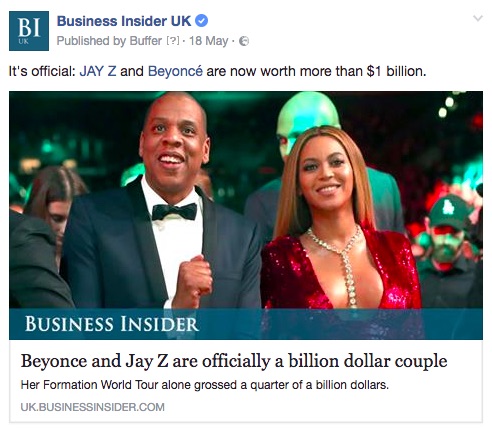Secure your place at the Digiday Media Buying Summit in Nashville, March 2-4
‘We need to be bolder’: How publishers control their brand identity on social platforms

Standing out on distributed platforms presents a branding challenge for publishers. News feeds are crowded, and people scroll fast. In a Reuters experiment, most people remembered how they found a news story, but only 37 percent could recall the name of the news brand itself when coming from search, compared to 47 percent from social.
“It’s a crowded market, and there’s lots of evidence to indicate that our audiences are not always aware that what they’re seeing on social platforms is produced by one publisher or another. We need to be much bolder on all this,” said Mark Frankel, social media editor at BBC News.
Digiday asked five publishers — Business Insider UK, The Times of London, The Sun, CNN and the BBC — how they’re working on standing out. Here are the takeaways:
Make a quick impression
BBC News, CNN, Business Insider, The Sun and The Times heavily brand posts and videos that go out on Facebook and Instagram to make sure people know the source within seconds of seeing them in their feeds. CNN went a step further, incorporating the same red in its logo to specific words in the body of articles it runs on Apple News, Facebook, Google AMP or Instagram.
“Audiences see our signature red logo and know they’re getting verified, reliable news and information. That recognition becomes even more important in their feeds where there is little distinction among fact and fiction,” said Mitra Kalita, vp of digital programming at CNN.

Business Insider has begun adding banners to some Facebook thumbnail posts, as does the Guardian, so the brands travel whenever a link is shared outside of Facebook pages.
Making content synonymous with brand
Publishers also are using content and tone to reinforce their brands. “We try to inject as much personality as possible, particularly now that Facebook is algorithmically favoring [users’] reactions,” said Charles Clark, social media editor at Business Insider UK. “Publishers need emotion and personality if they want their content and brand to travel.”
Similarly, News UK tabloid paper The Sun favors videos that are positive, funny and inclusive when it posts to Facebook. “We find that positivity is inherently more shareable, and I see our job with video on social to challenge people’s perception of The Sun,” said Derek Brown, head of video at News UK.
Consistency across sub-brands
The Sun has various sub-brands, such as fantasy football site Dream Team and Sun Fabulous, and each has its own style and tone. But for The Times, also owned by News UK, it’s more important to maintain the same tone and techniques across the publication’s sites and verticals. That’s why all text on social posts are edited by Times journalists to ensure the standard and tone is the same as the publication. They also use an in-house tool that pulls in the most shareable quotes into digital cards with a uniform tone and design.

“They allow us to create images to go with articles where we don’t have a lead image to pull out the most controversial opinions in comment pieces or the most shareable fact from the article,” said William Park, social media editor at The Times.
More in Media

Digiday+ Research: Dow Jones, Business Insider and other publishers on AI-driven search
This report explores how publishers are navigating search as AI reshapes how people access information and how publishers monetize content.

In Graphic Detail: AI licensing deals, protection measures aren’t slowing web scraping
AI bots are increasingly mining publisher content, with new data showing publishers are losing the traffic battle even as demand grows.

In Graphic Detail: The scale of the challenge facing publishers, politicians eager to damage Google’s adland dominance
Last year was a blowout ad revenue year for Google, despite challenges from several quarters.








